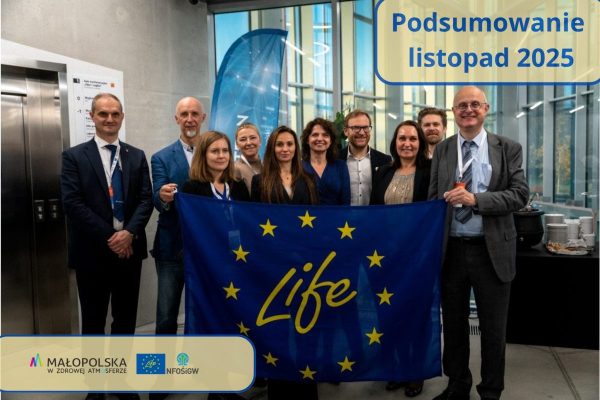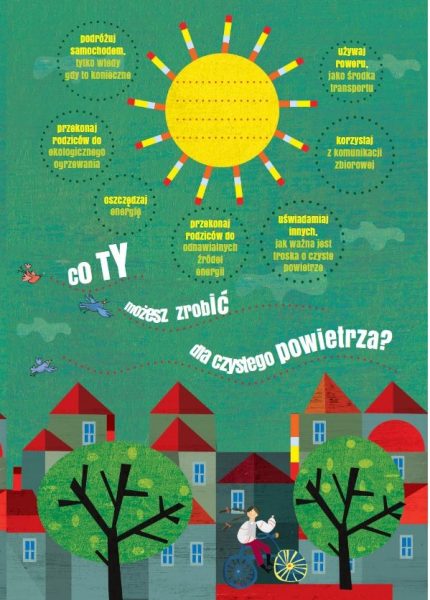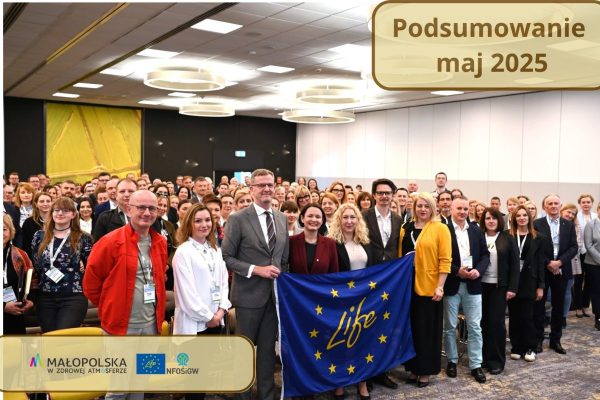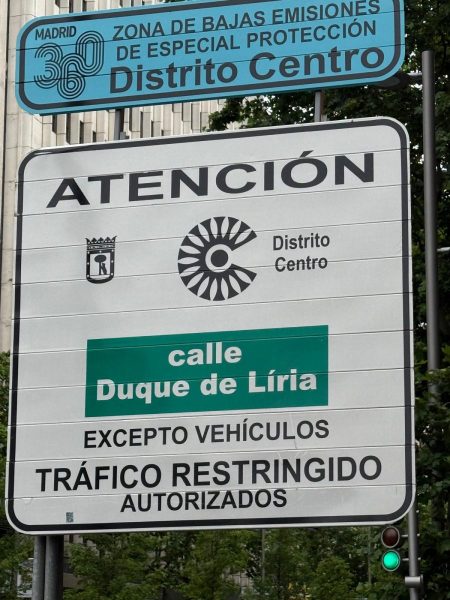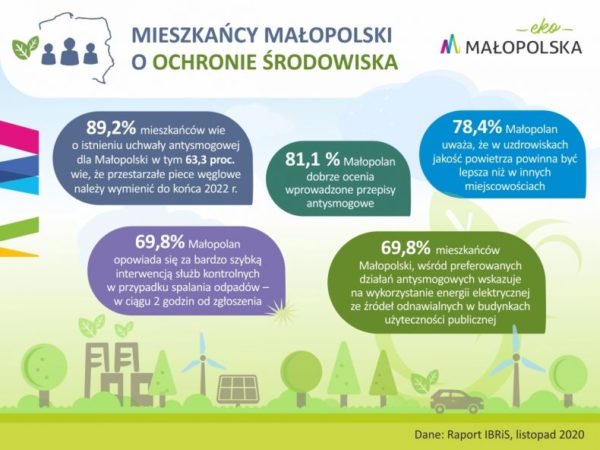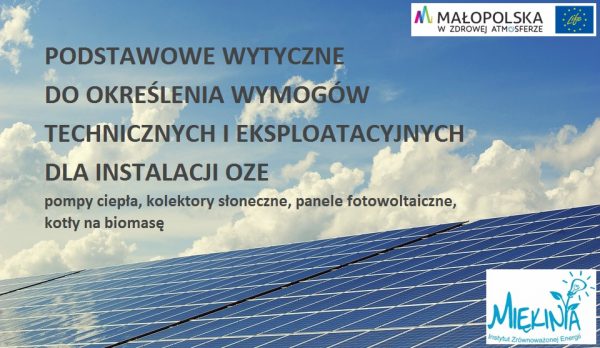The Sejmik of the Małopolska Region has adopted a new Air Protection Programme!
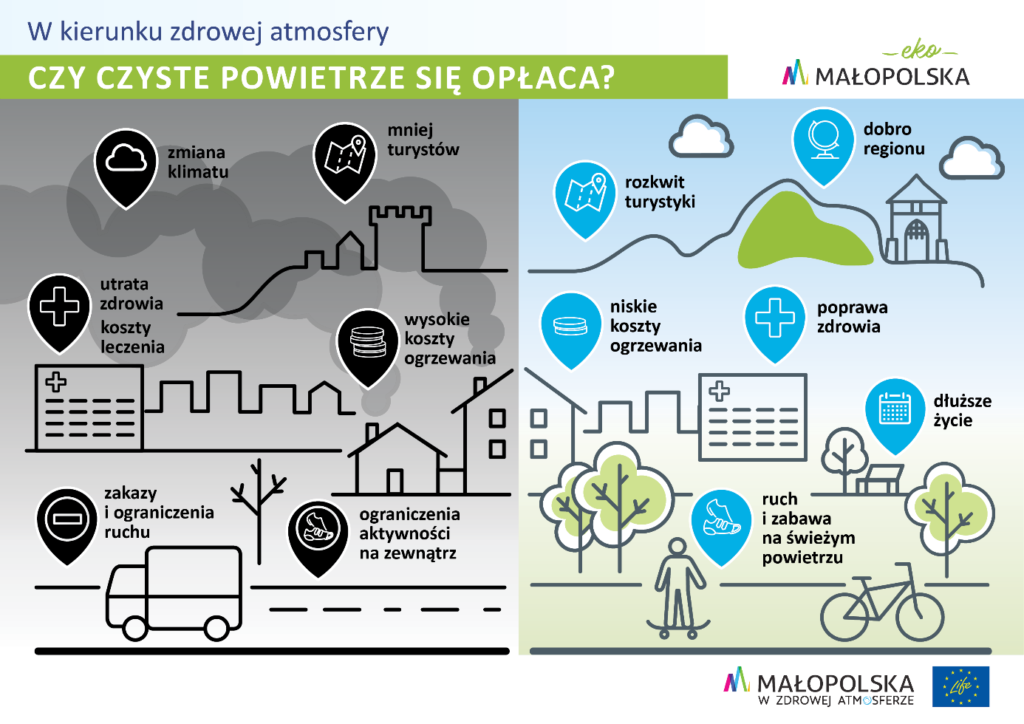
The fight for clean air in Małopolska has been going on for many years. Pioneering measures, such as the total ban on the use of coal and wood in Krakow, are a source of satisfaction for some and a cause for criticism for others. Both are breathing the same air, the protection of which is being fought for together by the local authorities of Małopolska.
The new Air Protection Programme for the Małopolska Region, adopted on 28 September 2020, is another important step towards improving air quality in Małopolska.
Work on creating an ambitious programme took almost 11 months. Many people, many environments were involved in this work. Social consultations lasted over seven months (…). Several thousand comments of various kinds were submitted.
– said Tomasz Urynowicz, Deputy Marshal of Małopolska.
What will be the air quality in Małopolska in the coming years?
The main task of the Programme is to improve air quality in the shortest possible time. In accordance with a judgment of the Court of Justice of the EU, issued due to the fact that air quality standards in Poland have been exceeded, these measures must be adequate to the level of pollution and are intended to achieve acceptable levels as soon as possible. The amount of harmful substances in the air continues to exceed the permissible levels in the entire region. There is, a visible improvement in air quality in Krakow and Małopolska, especially during the heating period from October to March. The average concentration of PM10 dust between the winter season 2014-2015 and the last season 2019-2020 dropped by 30% in Małopolska, and by as much as 45% in Kraków.
This is due to the fact that since 2013, 43.6 thousand boilers and furnaces using solid fuels have been replaced in the region. Over 22 thousand of them were located in Krakow only.
The effects achieved are the success of a consistent environmental policy, including the implementation of anti-smog resolutions.
– said Deputy Marshal Tomasz Urynowicz during the session of the Sejmik.
According to the Air Protection Programme, already in 2023 the dust content standard in the atmosphere will be met. In 2026, however, the emission of the carcinogenic benzo(a)pyrene will be so limited that its content in the air inhaled by the residents of Małopolska will meet the target standard.
Financial support is the basis for the implementation of the Programme
However, in order to implement the assumptions of the POP, a number of new actions need to be taken, which require greater involvement of local authorities in helping the inhabitants. Among other things, in taking advantage of subsidies for the exchange of heating sources, thermal modernisation of buildings and use of renewable energy sources. The wallets of the residents of Małopolska can receive money not only from programmes such as Clean Air, My Current or STOP SMOG. Also thermomodernization reliefs and municipal programmes. Additionally, it is expected that shielding programmes will be created for people affected by energy poverty. It was recommended, among other things, that from 2021 at least 1% of the income of the municipality’s own revenues should be allocated to air protection activities. Part of this money will be allocated to protective programmes.
There is planned to be an eco-manager in each municipality to help the people to get the information they need. They will also provide support in using the available financial resources. It is important, however, that the eco-manager knows who to reach with the information. Therefore, one of the priority actions of municipalities is building a full inventory of heating equipment. This is also related to the government’s planned activities within the framework of the Central Building Emissions Register. Every resident will be obliged to report his or her heat and electricity source. It is also necessary to support the implementation of the Clean Air Priority Programme by creating Service Points of this programme in all communes of Małopolska.
Banning of fuel combustion? NO!
The measures in the Air Protection Programme do not include a ban on the use of solid fuels in the Małopolska region. Under current antismog resolutions, it will be possible to burn coal and wood in the entire region outside Krakow. It will be possible to install and operate boilers and fireplaces and room heaters for coal, wood and biomass on the principles set out in the antismog resolution, i.e. meeting Ecodesign requirements. Farmers and gardeners will still be able to use coal and wood to heat tunnels and greenhouses, but better quality equipment will result in less fuel being burned and the air being much cleaner.
Fireplace owners do not have to be afraid that they will not be able to use them unless smog alarms of I, II and III degree occur. Then all recreational fuel combustion sources, which means fireplaces, will be excluded. They may not cause significant emissions, but it is important to reduce emissions from all unnecessary emission sources in an area where air quality has deteriorated. The short-term action plan also provides for the reduction of other works which may cause further deterioration in air quality, such as the use of leaf blowers, construction work related to dust emissions or emissions from industrial plants.
In terms of climate protection, the use of renewable energy sources will become more important and will be promoted by providing higher funding, as well as the use of ‘green energy’ in public buildings.
Under the Programme, local governments are requested to carry out intervention checks on compliance with air protection regulations within 12 hours of reporting an offence. An example of this is eco-intervention, which is an innovative application implemented over a year ago in Małopolska. Municipal authorities will also have to plan system inspections – their number depends on the number of residents in the municipality. According to the Programme, the inspections will be carried out on the basis of internal procedures for the control of furnaces. Municipalities are obliged to develop them by the 30th September 2021.
Clean transport in Krakow
Air protection means not only replacing boilers and furnaces, but also taking care of sustainable transport in cities. In Kraków, where the impact of transport on air quality is greatest, a clean transport zone is planned to be implemented from 2026. When the zone is created, the owner of a 12-year-old diesel car or a 20-year-old petrol car will not be able to enter the designated area of the city. However, until then, national legislation must be introduced to enable such zones to be established.
The residents of Małopolska will gain:
- Cleaner air
- Financial support for the replacement of old heat sources
- Professional advice in municipalities through eco-managers
- Easier access to financial programmes
- Wide access to environmental education
- Access to information on pollution from industrial sites
- Current access to information on air quality

Check: https://powietrze.malopolska.pl/program-ochrony-powietrza/


